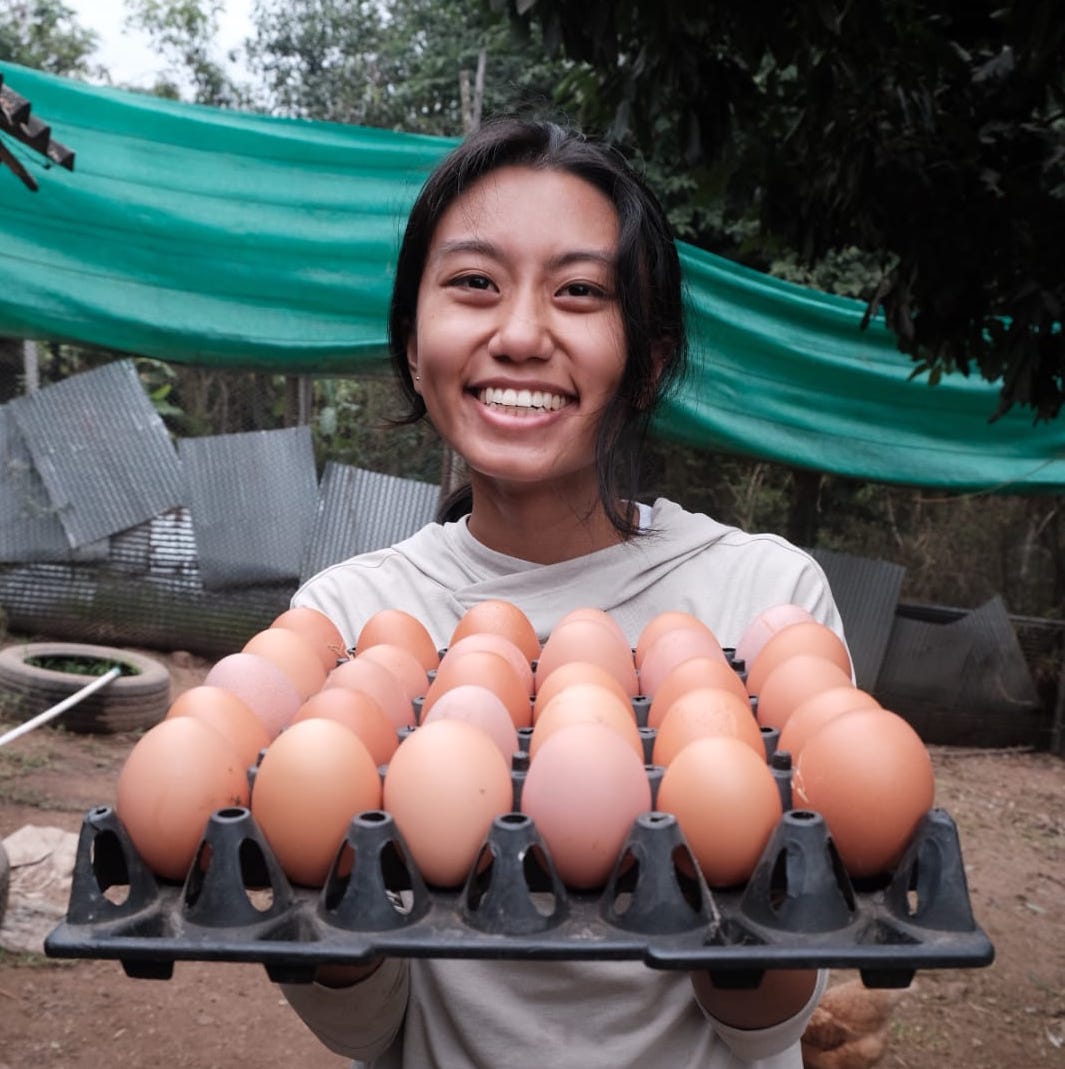
Introduction: Marion Madanguit
I applied for this fellowship because…
I want to create meaningful change toward a socially and environmentally just future. There are many, many ways to do this and I’m still trying to find my place in the movement, but over the last year I’ve grown especially curious in how local and organic farming can embody that future. I learned about Groundwork through its ties to Pun Pun, an organic farm and seed saving center I was volunteering at in Thailand, and applied because of the opportunity it offered to dive into the spiritual, cultural, and physical work of feeding myself and my community.
Some life experiences that brought me to the point where I am are…
So many! I feel fortunate to have been encouraged throughout my education to get involved in my community and contribute to change. In high school, I joined a small experimental learning community called IGSS, where instead of preparing for a final exam, student practiced being active community members and agents of change. IGSS gave me the freedom to dig into my curiosities and work on the issues most important to me. I spent my time volunteering at a local community garden while studying different initiatives to address food apartheid in Chicago. IGSS shaped me in many ways. It showed me the power and possibility of learning by doing and inspired a deep commitment to serving my community.
My experience in IGSS led me to Olin, a small, project-based engineering school. I found inspiration in activist engineering groups who sought to break away from the dominant culture of moving fast and breaking things by embracing a practice of slowness, deliberation, care, and maintenance in their work. During this time, I worked on projects in partnership with people and organizations seeking to address imbalance and injustice with technology, including software to optimize solar farms and data tools to call attention to racially discriminatory policing. After many summers working on various technological projects, I realized that the transformation required for a more just and sustainable world required more than just changing our technologies. I realized that no amount of optimizing our technologies would address the underlying issue of an economic system built on exploitation and extraction.
And so I searched for other paths forward, and found them by getting involved in local mutual aid and solidarity economy initiatives, taking direct action to push our school to divest from fossil fuels, and deepening my political understanding of the crises we face today by studying environmental justice issues in Cambodia. During my time in Cambodia, I visited forests and communities devastated by industrial food production. I met with local and indigenous farmers across the country who had been pushed off their lands in the face of large-scale plantations that prioritize production over the preservation of their livelihoods. I learned of their struggle for autonomy and restoration through community-based management and alternative agricultural practices. I sit now with a growing curiosity about how local and organic farming can transform the food system into something better for people and the planet.
What are your goals for this fellowship?
I’m excited to shape and be shaped by this fellowship. I hope to reconnect to the land and its fruits through this experience and to learn how to live in reciprocity. I hope to learn from and contribute to efforts to create real transformative change in the face of massive systemic inequality and a changing climate. Ultimately, I hope to leave this fellowship as someone who sees a path toward a more just and sustainable future and can walk it with others in my community.
Given the state of the world, how do you feel about inheriting this world from previous generations?
I find peace in knowing that 1) nature will persist and 2) what we plant will grow with proper care. I feel grateful for the seeds of change that have been planted by our ancestors. I hope to learn from them and nurture their growth.